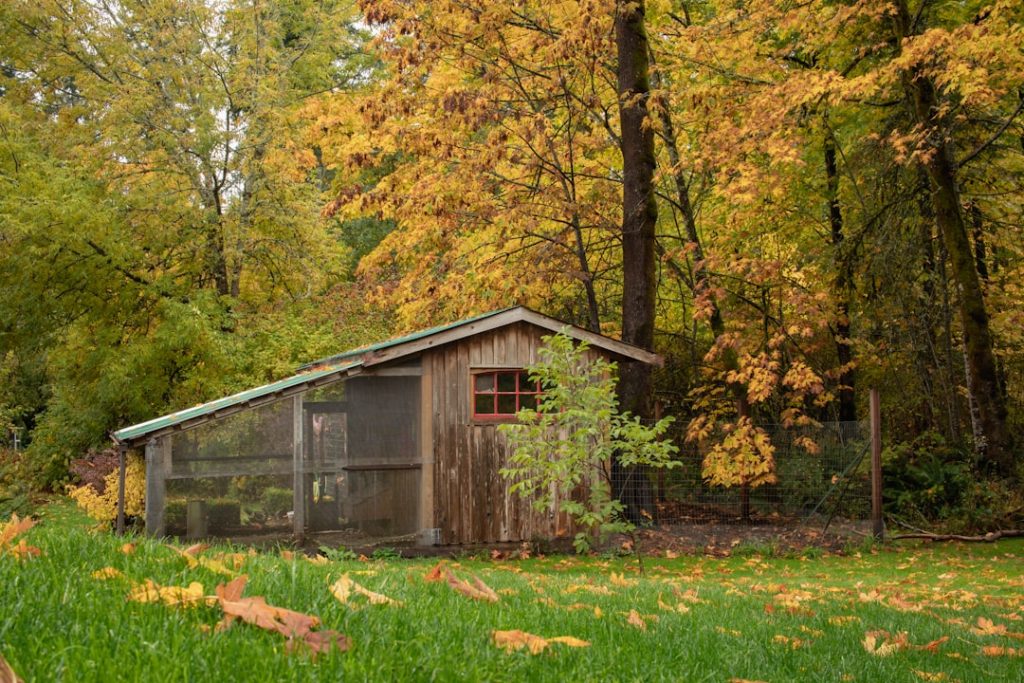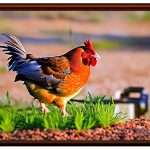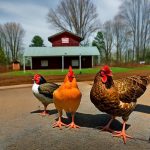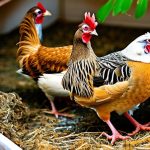Hope Valley is a town renowned for its scenic beauty and close-knit community. In recent years, there has been an increasing trend among residents to keep chickens on their properties for various purposes, including egg production, natural pest control, and companionship. This growing interest has necessitated the implementation of regulations to safeguard the health and welfare of both the chickens and the community at large.
The Hope Valley Keeping Chickens Laws have been established to provide clear guidelines for residents who wish to raise chickens on their properties. These regulations address important aspects such as noise control, sanitation standards, and zoning requirements. By familiarizing themselves with and adhering to these laws, residents can enjoy the benefits of chicken-keeping while maintaining a harmonious living environment within the community.
Table of Contents
- 1 Understanding the Zoning Regulations for Keeping Chickens in Hope Valley
- 2 Health and Safety Requirements for Keeping Chickens in Hope Valley
- 3 Permits and Licensing for Keeping Chickens in Hope Valley
- 4 Noise and Nuisance Regulations for Keeping Chickens in Hope Valley
- 5 Enforcement and Penalties for Violating Keeping Chickens Laws in Hope Valley
- 6 Resources and Support for Hope Valley Residents Keeping Chickens
- 7 FAQs
- 7.1 What are the laws for keeping chickens in Hope Valley?
- 7.2 How many chickens are allowed in Hope Valley?
- 7.3 What are the coop requirements for keeping chickens in Hope Valley?
- 7.4 Are there restrictions on keeping roosters in Hope Valley?
- 7.5 What are the distance requirements for keeping chickens from property lines in Hope Valley?
Key Takeaways
- Hope Valley residents are allowed to keep chickens, but there are specific laws and regulations that must be followed.
- Zoning regulations in Hope Valley dictate the number of chickens allowed, coop placement, and distance from property lines.
- Health and safety requirements include proper housing, sanitation, and protection from predators for chickens.
- Permits and licensing are required for keeping chickens in Hope Valley, and must be obtained from the local authorities.
- Noise and nuisance regulations address issues such as crowing, odor, and waste management related to keeping chickens in Hope Valley.
- Violating keeping chickens laws in Hope Valley can result in enforcement actions and penalties.
- Residents can find resources and support for keeping chickens in Hope Valley through local organizations and community groups.
Understanding the Zoning Regulations for Keeping Chickens in Hope Valley
Varied Regulations Across the Town
In Hope Valley, zoning regulations for keeping chickens may vary depending on the specific area within the town. For example, some residential areas may have restrictions on the number of chickens allowed per property, while agricultural zones may have more lenient regulations.
Property Size Considerations
In addition to zoning regulations, residents should also consider the size of their property when planning to keep chickens. Some areas in Hope Valley may have minimum lot size requirements for keeping chickens, while others may have restrictions on coop placement or distance from neighboring properties.
Compliance and Enjoyment
By understanding and adhering to these regulations, residents can ensure that they are in compliance with the law and can enjoy keeping chickens on their properties without any issues. It is essential for residents to carefully review the zoning regulations and consult with local authorities if they have any questions or concerns.
Health and Safety Requirements for Keeping Chickens in Hope Valley
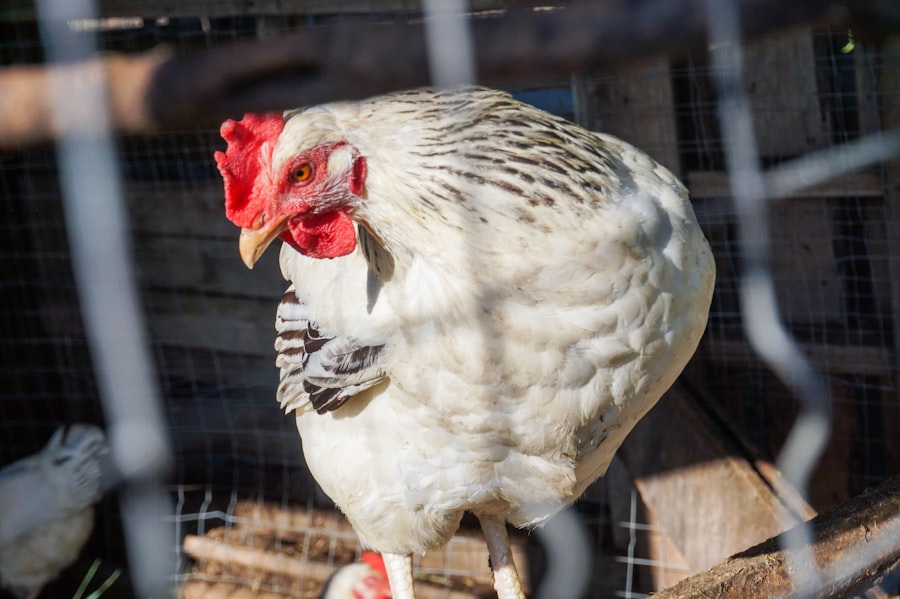
The health and safety of both the chickens and the community are top priorities when it comes to keeping chickens in Hope Valley. To ensure the well-being of the chickens, residents must adhere to specific health and safety requirements outlined in the Keeping Chickens Laws. These requirements may include providing adequate shelter, clean water, proper nutrition, and access to outdoor space for the chickens to roam.
Additionally, residents must also take measures to prevent the spread of diseases and parasites among their flock, such as regular cleaning of coops and monitoring the overall health of the chickens. Furthermore, residents must also consider the safety of their neighbors and the community when keeping chickens on their properties. This may involve taking steps to minimize odors, pests, and noise associated with keeping chickens.
Proper waste management, regular coop maintenance, and noise control measures are essential to ensure that keeping chickens does not become a nuisance to others in the community. By prioritizing the health and safety of both the chickens and the community, residents can demonstrate responsible chicken ownership and contribute to a positive environment in Hope Valley.
Permits and Licensing for Keeping Chickens in Hope Valley
In addition to understanding zoning regulations and health and safety requirements, residents in Hope Valley may also need to obtain permits or licenses to legally keep chickens on their properties. These permits are typically issued by local authorities and serve as a means of regulating and monitoring chicken ownership within the town. The specific requirements for obtaining permits or licenses may vary depending on the area within Hope Valley and the number of chickens being kept.
Some areas may require a simple registration process, while others may involve inspections or additional documentation. By obtaining the necessary permits or licenses, residents can demonstrate their commitment to following the law and ensuring that they are in compliance with local regulations. This also provides an opportunity for local authorities to educate residents on best practices for keeping chickens and address any concerns or issues that may arise.
It is important for residents to familiarize themselves with the permit requirements in their specific area and to reach out to local authorities if they have any questions or need assistance with the application process. By doing so, residents can ensure that they are legally keeping chickens on their properties and contributing to a positive environment in Hope Valley.
Noise and Nuisance Regulations for Keeping Chickens in Hope Valley
Noise and nuisance regulations are important considerations for residents who wish to keep chickens in Hope Valley. While chickens are generally not known for being excessively noisy animals, they do have the potential to create disturbances if not properly managed. In order to maintain harmony within the community, residents must take measures to minimize noise associated with keeping chickens, such as crowing or clucking.
This may involve locating coops away from neighboring properties, using soundproofing materials, or implementing noise control measures during certain times of day. Additionally, residents must also consider potential nuisances that may arise from keeping chickens, such as odors, pests, or waste management. Proper sanitation practices, regular coop maintenance, and waste disposal are essential to prevent these nuisances from impacting the surrounding area.
By being mindful of noise and nuisance regulations, residents can demonstrate consideration for their neighbors and contribute to a positive living environment in Hope Valley.
Enforcement and Penalties for Violating Keeping Chickens Laws in Hope Valley
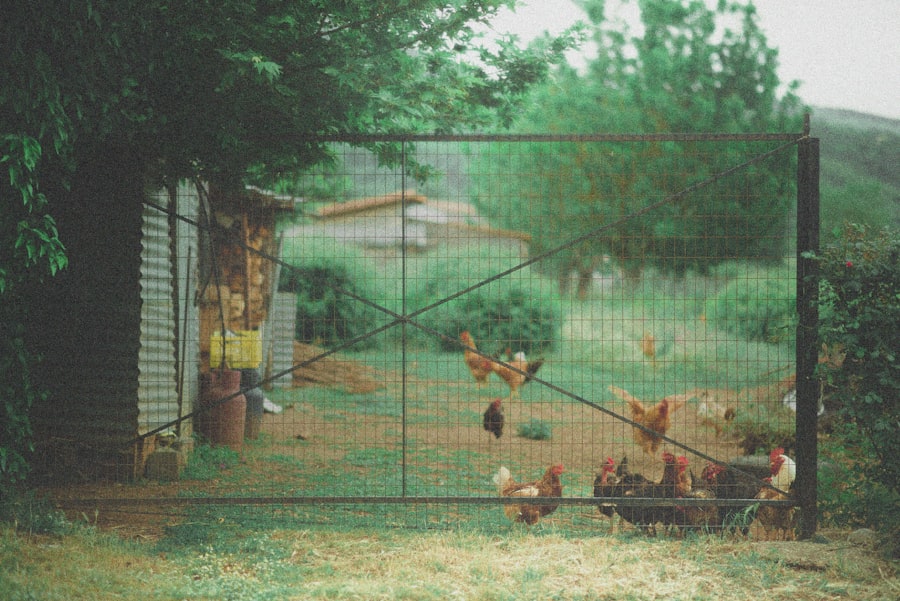
Ensuring Compliance with Keeping Chickens Laws in Hope Valley
Enforcement of Keeping Chickens Laws
Enforcement of the Keeping Chickens Laws in Hope Valley is essential to ensure that residents are in compliance with regulations and that any violations are addressed promptly. Local authorities are responsible for enforcing these laws and may conduct inspections or respond to complaints related to chicken ownership within the town.
Consequences of Non-Compliance
In the event of a violation, residents may be subject to penalties or fines, depending on the nature and severity of the infraction.
Preventing Issues and Ensuring Compliance
It is important for residents to understand the potential consequences of violating keeping chickens laws in Hope Valley and to take proactive measures to prevent any issues from arising. This may involve familiarizing themselves with the specific regulations, seeking guidance from local authorities if needed, and taking steps to ensure that they are in compliance with all requirements. By doing so, residents can avoid potential penalties and contribute to a positive environment within the community.
Resources and Support for Hope Valley Residents Keeping Chickens
Residents in Hope Valley who are interested in keeping chickens can benefit from a variety of resources and support available within the community. Local organizations, agricultural extension services, and online forums can provide valuable information on best practices for chicken ownership, as well as guidance on navigating zoning regulations, health and safety requirements, permits, and enforcement procedures. Additionally, connecting with other chicken owners in the area can provide a sense of community and an opportunity to share experiences and knowledge.
Local authorities may also offer educational workshops or resources specifically tailored to residents who wish to keep chickens on their properties. These resources can help residents understand their rights and responsibilities as chicken owners, as well as provide guidance on addressing any concerns or issues that may arise. By taking advantage of these resources and support systems, residents can feel confident in their ability to keep chickens responsibly and contribute positively to the community of Hope Valley.
In conclusion, keeping chickens in Hope Valley can be a rewarding experience for residents who are willing to adhere to the Keeping Chickens Laws and prioritize the health, safety, and well-being of both their flock and the community. By understanding zoning regulations, health and safety requirements, permits and licensing procedures, noise and nuisance regulations, enforcement measures, as well as accessing available resources and support systems, residents can ensure that they are legally keeping chickens on their properties while contributing positively to the environment within Hope Valley. With careful consideration and responsible ownership practices, residents can enjoy all the benefits that come with keeping chickens while maintaining harmony within their community.
If you’re interested in learning more about keeping chickens in Hope Valley, you might want to check out this article on PoultryWizard. They offer a wealth of information on raising poultry, including tips on feeding ducks (source) and breeding turkeys during mating season (source). It’s a great resource for anyone looking to start their own backyard flock.
FAQs
What are the laws for keeping chickens in Hope Valley?
In Hope Valley, the laws for keeping chickens typically include regulations on the number of chickens allowed, coop requirements, distance from property lines, and restrictions on roosters.
How many chickens are allowed in Hope Valley?
The number of chickens allowed in Hope Valley varies by specific zoning regulations. Typically, the number is limited to a certain amount, such as 6-12 chickens, depending on the size of the property.
What are the coop requirements for keeping chickens in Hope Valley?
Coop requirements in Hope Valley usually include specifications for the size of the coop, ventilation, predator-proofing, and cleanliness. The coop must also provide adequate space for the number of chickens being kept.
Are there restrictions on keeping roosters in Hope Valley?
Many areas in Hope Valley have restrictions on keeping roosters due to noise concerns. It’s important to check local ordinances to determine if roosters are allowed and under what conditions.
What are the distance requirements for keeping chickens from property lines in Hope Valley?
In Hope Valley, there are often distance requirements for keeping chickens from property lines to minimize disturbances to neighbors. These distances can vary, so it’s important to check local regulations.

Meet Walter, the feathered-friend fanatic of Florida! Nestled in the sunshine state, Walter struts through life with his feathered companions, clucking his way to happiness. With a coop that’s fancier than a five-star hotel, he’s the Don Juan of the chicken world. When he’s not teaching his hens to do the cha-cha, you’ll find him in a heated debate with his prized rooster, Sir Clucks-a-Lot. Walter’s poultry passion is no yolk; he’s the sunny-side-up guy you never knew you needed in your flock of friends!
Meet Walter, the feathered-friend fanatic of Florida! Nestled in the sunshine state, Walter struts through life with his feathered companions, clucking his way to happiness. With a coop that’s fancier than a five-star hotel, he’s the Don Juan of the chicken world. When he’s not teaching his hens to do the cha-cha, you’ll find him in a heated debate with his prized rooster, Sir Clucks-a-Lot. Walter’s poultry passion is no yolk; he’s the sunny-side-up guy you never knew you needed in your flock of friends!

